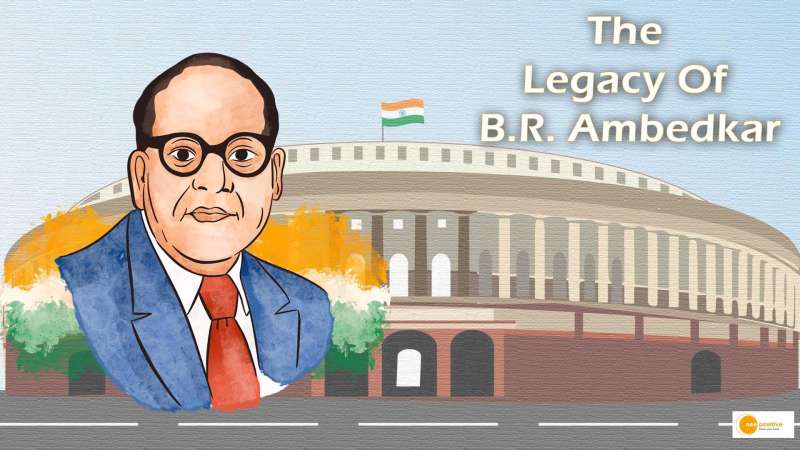

“Life should be great rather than long.”
A quote by Dr. B.R. Ambedkar, encapsulates his philosophy and outlook towards life. Dr. Bhimrao Ramji Ambedkar, popularly known as Dr. B.R. Ambedkar, is a name that resonates with the fight against social injustice and inequality in India. He is often referred to as the ‘Father of the Indian Constitution’ and was one of the most influential leaders during the country’s freedom struggle. Ambedkar’s contribution to India’s social, political, and economic landscape is immense, but many people are unaware of his lesser-known works and contributions.
Early Life and Struggles:
Ambedkar was born on April 14, 1891, in Mhow, a small town in present-day Madhya Pradesh. He belonged to the Mahar community, considered one of the lowest castes in the Hindu social hierarchy. Ambedkar faced discrimination and prejudice from a young age, which inspired him to fight for the rights of the oppressed and marginalized communities.
Architect of Indian Constitution:
Ambedkar’s contribution to the drafting of the Indian Constitution is unparalleled. He championed the cause of social justice and equality and ensured that the Constitution provided safeguards for the rights of the oppressed and marginalized communities. His vision for a modern, democratic, and progressive India laid the foundation for the country’s growth and development.
Advocacy for Social Justice and Equality:
Ambedkar was a fierce advocate of social justice and equality. He fought against the discriminatory practices of the caste system and advocated for the rights of Dalits, women, and other marginalized communities. He was also a staunch supporter of education and believed that it was the key to upliftment and empowerment.
Developed India’s national policy for water and electricity:
The pioneer of multipurpose river valley projects in India, Ambedkar initiated the Damodar Valley project, the Bhakra Nangal Dam project, the Son River Valley project and Hirakud dam project. He also established the Central Water Commission to facilitate the development of irrigation projects at both the Central and the state level.
To spark the development of India’s power sector, Ambedkar also established the Central Technical Power Board (CTPB) and Central Electricity Authority to explore the potential of and establish hydel and thermal power stations. He also emphasized on the need for a grid system (which India still relies on) and well-trained electrical engineers in India.
Unknown Facts About B.R. Ambedkar:
Apart from his well-known contributions, there are several lesser-known facts about Ambedkar.
1. He was the first Indian to pursue a doctorate in economics abroad and was also a prolific writer, with several books and articles to his credit.
2. Ambedkar was also a firm believer in Buddhism and embraced it towards the end of his life.
3. He also played a key role in the establishment of the Reserve Bank of India in 1935.
4. He is known to champion several reforms in labour such as changing working hours from 12 hours to 8 hours and introducing measures like dearness allowance, leave benefit, employee insurance, medical leave, equal pay for equal work, minimum wages, and timely revision of scale of pay.
5. Ambedkar’s autobiography, Waiting for a Visa is used as a textbook at Columbia University.
6. Ambedkar fought for three years to get the comprehensive Hindu Code Bill passed which gave several important rights to women.
In conclusion, B.R. Ambedkar was a visionary leader whose contributions to India’s social, political, and economic landscape cannot be overstated. His fight for social justice and equality has inspired generations of Indians, and his legacy continues to shape the country’s future. It’s time we recognize his contributions and celebrate his life and achievements.
Also Read: AMBEDKAR JAYANTI 2022: भारत में समानता राह दिखाने वाले सामाजिक नवजागरण के अग्रदूत डॉ बी आर अंबेडकर


